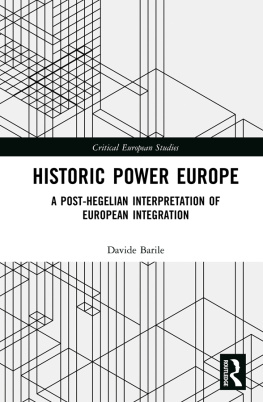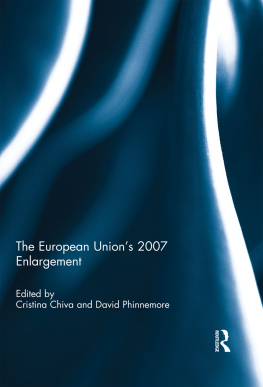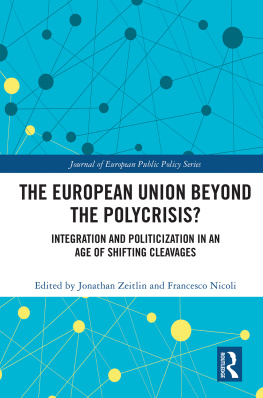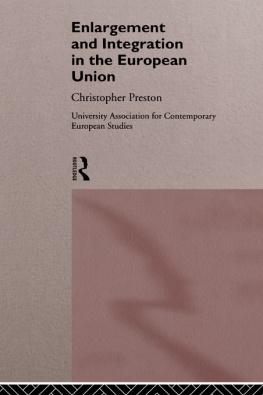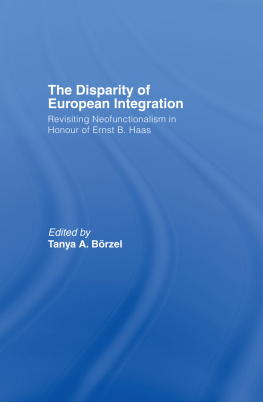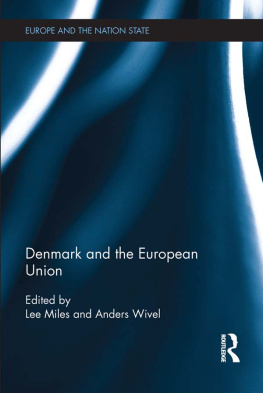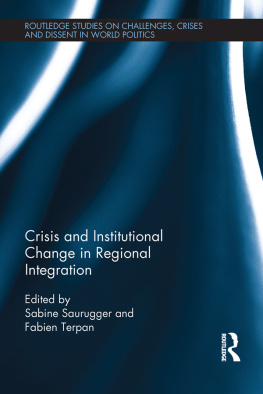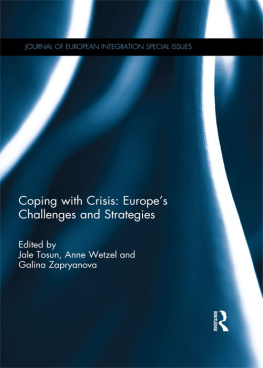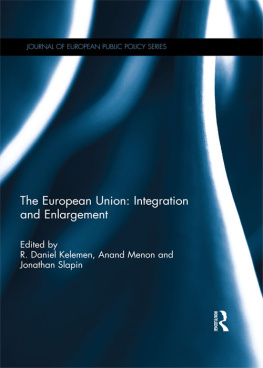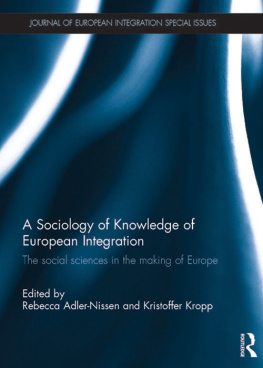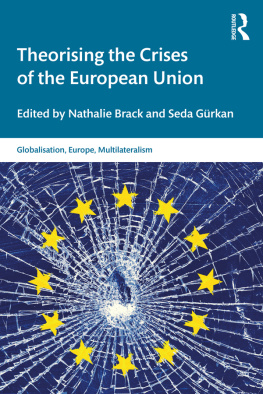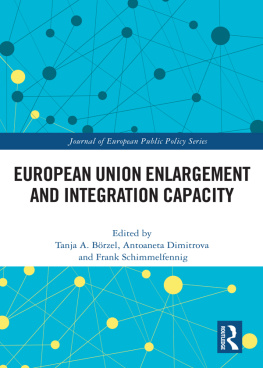Historic Power Europe
This book proposes a new theoretical framework to move beyond the traditional tenets of modern international relations theory to investigate European integration and shed light on current events.
Based on contemporary analyses, Hegels political philosophy, and the fundamental role of historical interpretation, this book addresses the institutional dynamics as well as the discursive practices behind both the Eastern enlargement and the current critical situation. Looking back in particular at European integration in one of its most significant events, namely the enlargement of the European Union to include former Socialist countries, it offers a unique conceptualisation of the nature and limits of European integration and for understanding the current crisis between Brussels and the Visegrd countries, 30 years since the revolutions of 1989.
This book will be of key interest to scholars and students of European integration, European politics and history, and political theory and philosophy.
Davide Barile teaches foreign languages and philosophy in Bologna, Italy.
Critical European Studies
Series Editor: Yannis A. Stivachtis
Virginia Tech, USA
Formerly co-edited with Hartmut Behr
Newcastle University, UK
The Democratic Quality of European Security and Defence Policy
Between Practices of Governance and Practices of Freedom
Evangelos Fanoulis
Lobbyists and Bureaucrats in Brussels
Capitalism's Brokers
Sylvain Laurens
Europeanization as Discursive Practice
Constructing Territoriality in Central Europe and the Western Balkans
Senka Neuman Stanivukovi
The Criminalisation of Communism in the European Political Space after the Cold War
Laure Neumayer
Conditionality, EU and Turkey
From Transformation to Retrenchment
Rahime Sleymanolu-Krm
Perceptions of the European Unions Identity in International Relations
Edited by Anna Skolimowska
European Citizenship and Identity Outside of the European Union
Europe Outside Europe?
Agnieszka Weinar
Historic Power Europe
A Post-Hegelian Interpretation of European Integration
Davide Barile
For more information about this series please visit: www.routledge.com/Critical-European-Studies/book-series/CEU
Historic Power Europe
A Post-Hegelian Interpretation of European Integration
Davide Barile
First published 2020
by Routledge
2 Park Square, Milton Park, Abingdon, Oxon OX14 4RN
and by Routledge
52 Vanderbilt Avenue, New York, NY 10017
Routledge is an imprint of the Taylor & Francis Group, an informa business
2020 Davide Barile
The right of Davide Barile to be identified as author of this work has been asserted by him in accordance with sections 77 and 78 of the Copyright, Designs and Patents Act 1988.
All rights reserved. No part of this book may be reprinted or reproduced or utilised in any form or by any electronic, mechanical, or other means, now known or hereafter invented, including photocopying and recording, or in any information storage or retrieval system, without permission in writing from the publishers.
Trademark notice: Product or corporate names may be trademarks or registered trademarks, and are used only for identification and explanation without intent to infringe.
British Library Cataloguing in Publication Data
A catalogue record for this book is available from the British Library
Library of Congress Cataloging in Publication Data
A catalog record has been requested for this book
ISBN: 978-0-367-35825-9 (hbk)
ISBN: 978-0-429-34212-7 (ebk)
Typeset in Times New Roman
by TNQ Technologies
By means of an atlas, Pcuchet showed Europe to him; and yet, dazzled by so many lines and colours, he was no longer able to find the names. Basins and mountains did not match with the kingdoms, the political order muddled the physical order.
Perhaps all this might be clarified by studying History.
Gustave Flaubert, Bouvard et Pcuchet (Translated by the author).
Contents
This book is a radical re-elaboration of the doctoral thesis I discussed at the Ruhr University Bochum: for this reason, in the first place I would like to thank my supervisors, Prof. Burkhard Liebsch and Prof. Piero Ignazi. Since the text was conceived, developed, and improved in different places, I would like to express my gratitude to other people who helped me throughout this long process: the staff of the Hegel-Archive in Bochum, Prof. Franck Fischbach and Prof. Jacob Rogozinski at the University of Strasbourg, and Prof. Michael Freeden at the University of Oxford. I would also like to thank Mr Michael Mowat, who helped me correct this final version.
I am also deeply grateful to Prof. Yannis Stivachtis and Mr Andrew Taylor for their constant encouragement throughout the peer review, as well as to the reviewers for their challenging comments.
This book, however, would not have been possible without the patient support of both my family and friends. It is to them, above all, that I am indebted.
The harmonisation of history
Abstract
The introductory chapter presents the structure of the book and offers an insight into the historical background of the Eastern enlargement of the European Union (EU) in 2004. During the 20th century, the history of Central and Eastern Europe was characterised by several projects meant to preserve the recent independence of the states born from the collapse of the Central Empires after World War I and, at the same time, make them co-operate through integration mechanisms. The EU Eastern enlargement may be seen as the culmination of this tendency, with independent states willingly limiting their sovereignty in order to join the shared normative setting underlying the European integration process. However, such setting implies a historically determined rationale and thus requires a harmonisation of the different historical consciences expressed by the national communities involved. These considerations set the premises for the books theoretical elaboration.
Sovereigns alone have the right to alter traditions.
Descartes, Discours de la mthode, Part 6. Translated by the author.
The concept of sovereignty is undergoing a deep change. From around the 16th century political philosophy identified sovereignty with the primacy of the state; Jean Bodin, for example, defined sovereignty as the absolute and perpetual power of a republic1 . At present, however, political philosophy acknowledges that states are actually undergoing a process of binding themselves to norms that are superior to their own. Legal frameworks established through treaties and organisations, or merely informal codes of behaviour which regulate international relations, are seeing norms overriding the sovereignty of the modern nation-state. What form does sovereignty currently assume, then, and why does it require such a new form?
Contemporary Europe provides us with a most revealing picture. Since the 1950s, Europe has witnessed the rise of an institutional framework meant to overcome the primacy of the nation-states and yet relying on the latter for its own legitimacy. As of this writing, 28 European countries have agreed to delegate part of their sovereignty to a supranational authority which eludes all definitions based on the concept of state (such as those of federation or confederation, let alone the one of state itself).2 These respective states have thus converted a delegated portion of their sovereignty over into a new institutional form. In fact, it has been argued that the European Union would transcend state government in order to exert power through governance, namely a set of rules, processes, and multi-level institutions.3 The sovereignty expressed by the European Union would differ from modern state sovereignty precisely by moving beyond the control of territories and populations in order to focus on the formal conditions that allow such control to be exerted legitimately by the states themselves.

